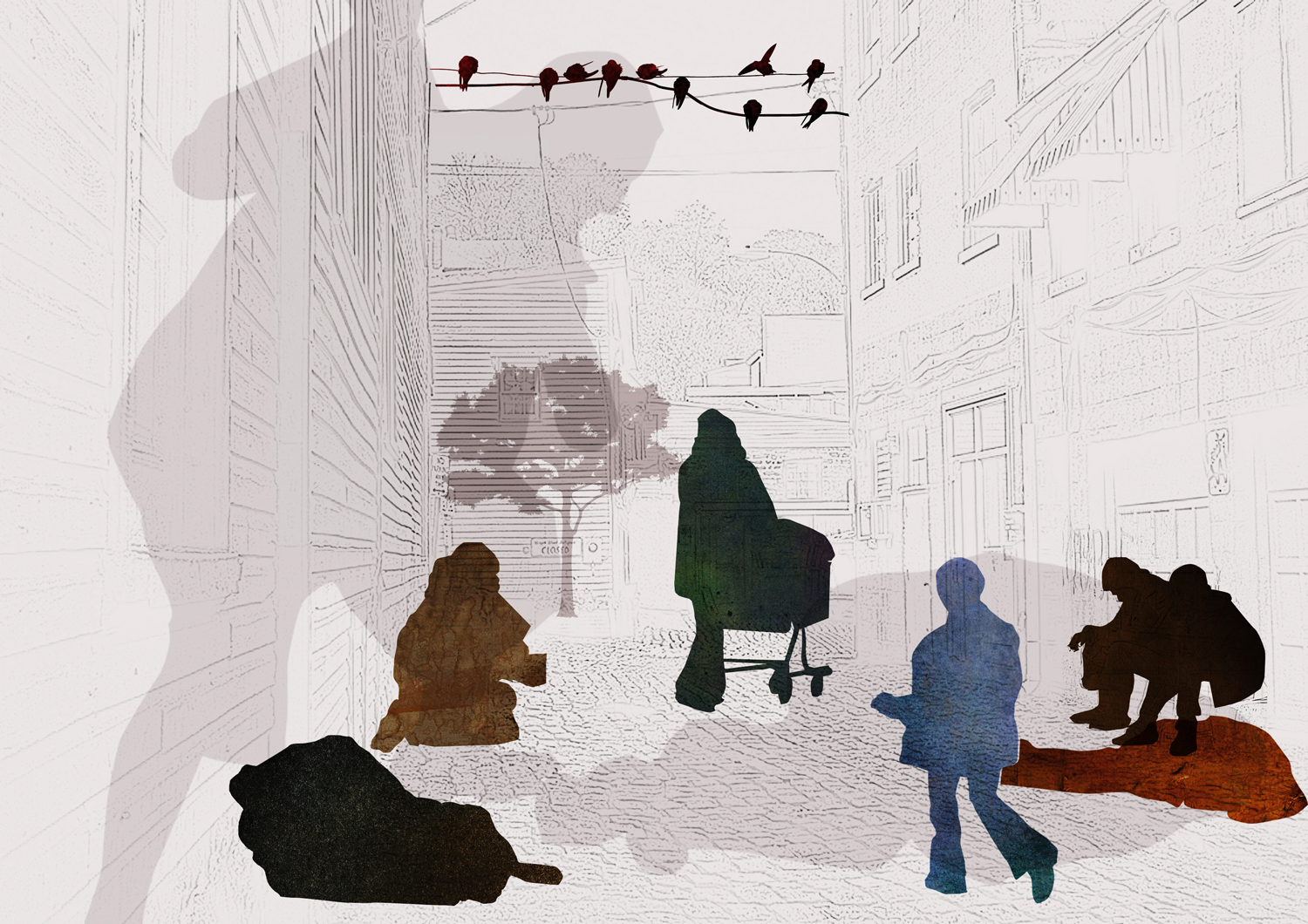
Illustration: Michal Eyal
It’s mental illness. Drugs. Laziness. People from out of state.
One-size-fits-all explanations about homelessness, why it exists, and why it’s growing run rampant among social media comment boards, conversations between friends, over dinner tables or amongst coworkers.
But one group is pushing back against these stereotypes, and leaning into a greater, more nuanced and regionalized understanding of the issue.
“Once we dispel myths surrounding homelessness, we can focus on the real needs of the people,” said John Hamby, executive director of Phoenix Community Alliance (PCA). “If we can get a little closer to being on the same page, we can use that energy to create real change for our community.”
In order to help dispel some of the myths surrounding homelessness, and the damaging stigmas associated with them, PCA’s Social and Housing Advancement Committee is opening up a community dialogue on the subject.
During the months of April and May, dtphx.org will host the voices and opinions of leading community experts, service providers, neighborhood groups and business professionals to talk about their experiences.
The goal is to break down stereotypes and common assumptions, according to Hamby, which will help develop a greater understanding of the complexities of homelessness, and in turn, move us one step closer to ending it.
PCA’s Social and Housing Advancement Committee is a group of business leaders, government officials, neighborhood groups and nonprofit organizations, which are actively working to address the lack of social services and affordable housing in Downtown Phoenix.
In addition to identifying models for funding affordable housing and eviction prevention, PCA recently put forth a five-part series of recommendations for the Capitol Mall area, which is where the Human Services Campus is located.
“It’s easy to say ‘it’s not me, it’s not my problem,’” said Mo Stein, co-chair of PCA’s Social and Housing Advancement Committee. “But these conditions affect everybody. Somebody has to stand up and advocate. Somebody has to stand up and call attention to the real critical issues of our time.”
Despite the focus on downtown, homelessness is a state-wide and community-wide issue, according to Stein, and one that’s growing at an alarming rate.
Nearly half of the 1,225 people experiencing homelessness in Downtown Phoenix were not staying in shelters during the 2020 Point-In-Time Homeless Count, a 107 percent increase from 2019. That means they were staying on streets, in tents, cars, or other areas not meant for human habitation.
Downtown didn’t participate in the county’s Point-In-Time count this year due to COVID-19, but PCA’s housing experts warn of the pandemic’s toll on those teetering on the edge.
“Understanding why people become homeless is extremely complicated and very individualized,” said Dr. Sheila Harris, co-chair of the PCA Social and Housing Advancement Committee. “Generally speaking, there is some sort of trauma involved, and that could be everything from losing a job, to losing a loved one, to losing their housing. People become homeless through a wide variety of factors, and no one person’s journey is like anyone else’s.”
The first step towards ending homelessness is developing a greater understanding of why people become homeless in the first place, according to Harris, and figuring out what the community can do to change that course of direction.
The work of PCA, a membership affiliate of Downtown Phoenix Inc., differs from other collaboratives in the sense that it provides the faith-based community, nonprofits and governments a direct line to downtown business leaders, according to Hamby. Individuals from the private sector can identify ways in which their resources can be the most impactful, where the gaps are, and how they can be filled in.
“PCA is consistently a place where difficult conversations turn into critical actions,” Hamby said. “PCA is experienced in getting the right people around the table to guide what’s next. From business leaders, nonprofit leaders, students, community stakeholders, neighbors to City leadership — all have a place within PCA.”


